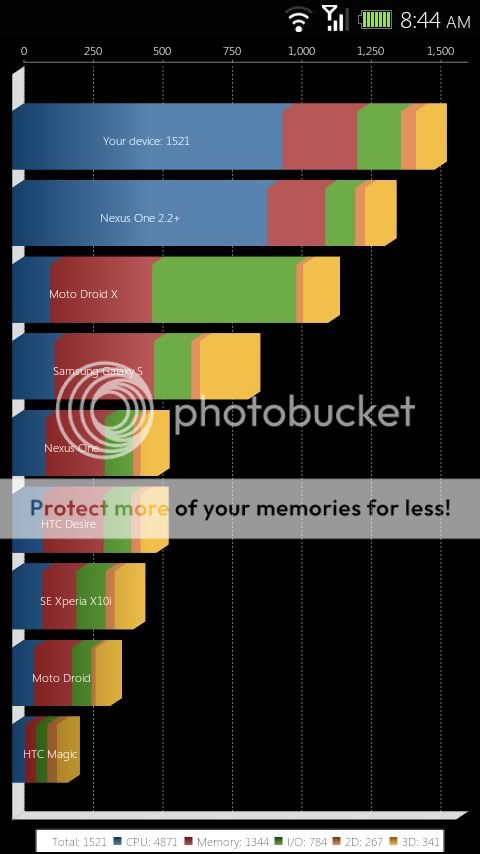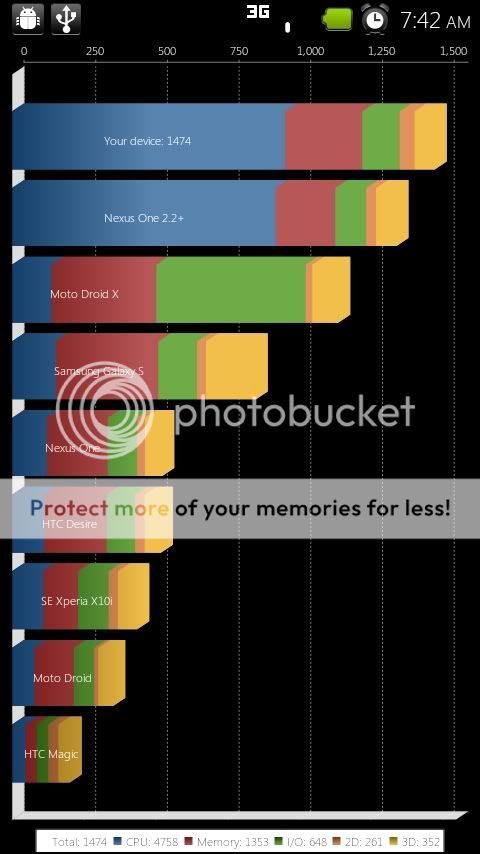I loaded UD1.0 on my phone earlier, and immediately went to Quadrant to see how it does... My score went down a touch, but the interesting thing is the reason why... The CPU score is up, quite a bit actually, a good 400 points, 3D is also up. The kicker is, the memory score has been split in half... I've tried 4 different kernels, tried with compcache off and on, tried my old kernel(which I used in my previous Quadrant attempts), and nothing has changed it, which leads me to believe it's an issue with the ROM... Heres some screenshots, the most recent Quadrant is the first image, the old high score on the second. My OG Droid is clocked at 1.1ghz for both of these, I believe the 1521 was done on UD7, the kernel was the ChevyNo1 LV 1.1ghz kernel... Running the Sholes kernel for the most recent screenshot.


Ideas?


Ideas?
Last edited:

